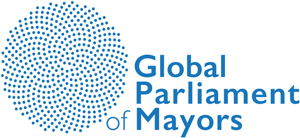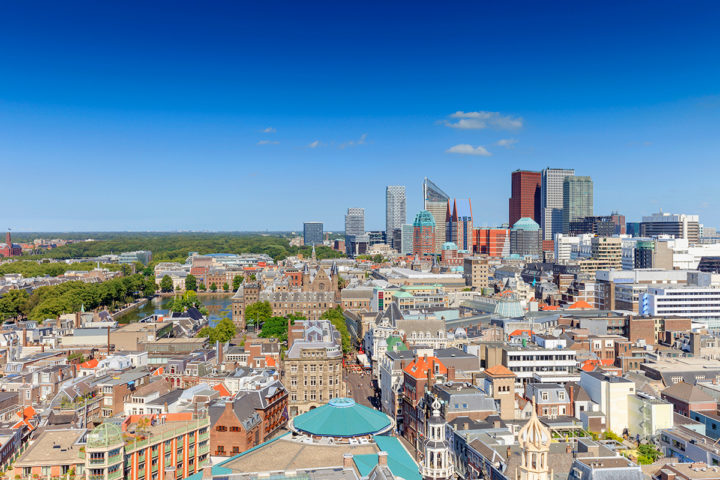The Global Parliament of Mayors (GPM) held its inaugural meeting in The Hague on 9th – 11th September. Mayors from many cities across the world convened to discuss the biggest issues their cities are facing, to share best practices and to learn lessons for future policy and practice. Representatives from other sectors were also present, including The Hague Institute’s President Dr. Abi Williams and Senior Advisor Frans Bouwen.
Frans Bouwen is involved in a multi-year project at the institute that focuses on conflict prevention in the city of The Hague. With the majority of the world’s population now living in urban areas, cities are the context in which conflict arises and where it should be resolved. The recently published report Conflict Prevention in The Hague and the Metropolitan Area – Phase One formulates three main recommendations: 1) to improve communication between institutions and local leaders; 2) to improve the understanding of the changing nature of conflict and develop tailored responses; and 3) to recognize the importance of networks.
The GPM addressed the three areas of migration, climate change, and good governance, which like the institute’s project on conflict prevention, center on the capacity of cities to tackle complex challenges that typically fall under the remit of states. The GPM also exemplifies the need for networks that enable the exchange of knowledge and experiences between relevant actors and stakeholders. Other similar networks of cities include the C40 Cities Climate Leadership Group, Eurocities and the U.S. Conference of Mayors. However, the GPM’s initiative to include cities from all continents signals a unique development within the evolving landscape of global governance and adds a valuable voice to the conversation among policymakers.
Building on Benjamin Barber’s book If Mayors Ruled the World, from which the event has taken its name, the Global Parliament of Mayors is ambitious. Barber describes a world in which nation-states, “the perfect political recipe for independence,” are failing to address the challenges that affect us all, because they are not equipped to function in a context of growing global interdependence. In the age of globalization, according to Barber, a network of cities is where true democratic potential lies.
“Let cities, the most networked and interconnected of our political associations, defined above all by collaboration and pragmatism, by creativity and multi-culture, do what states cannot.”
Benjamin Barber, If Mayors Ruled the World
Reading Barber’s book, it is hard to ignore the potential of the practical and collaborative approach that cities are able to take. The Conflict Prevention within the Metropolitan Area project in The Hague shows that local actors are capable of making a real difference in their immediate environment. The main difficulty, however, will be to effect change on a global scale. Although mayors have proven their ability to create significant change across many cities in different regions of the world, states remain the prime movers in international relations and global affairs.
It is important that the GPM connects strategically with states and international organizations if it wants to strengthen its influence and impact on migration, climate change, and governance. One way to do this is to actively participate in summits and conferences. It will therefore be interesting to see how the GPM, and mayors more broadly, contribute to the third UN Conference on Housing and Sustainable Urban Development next month in Quito.
This article was written by Anneke Veltman and published on 15 September 2016 by The Hague Institute for Global Justice:

